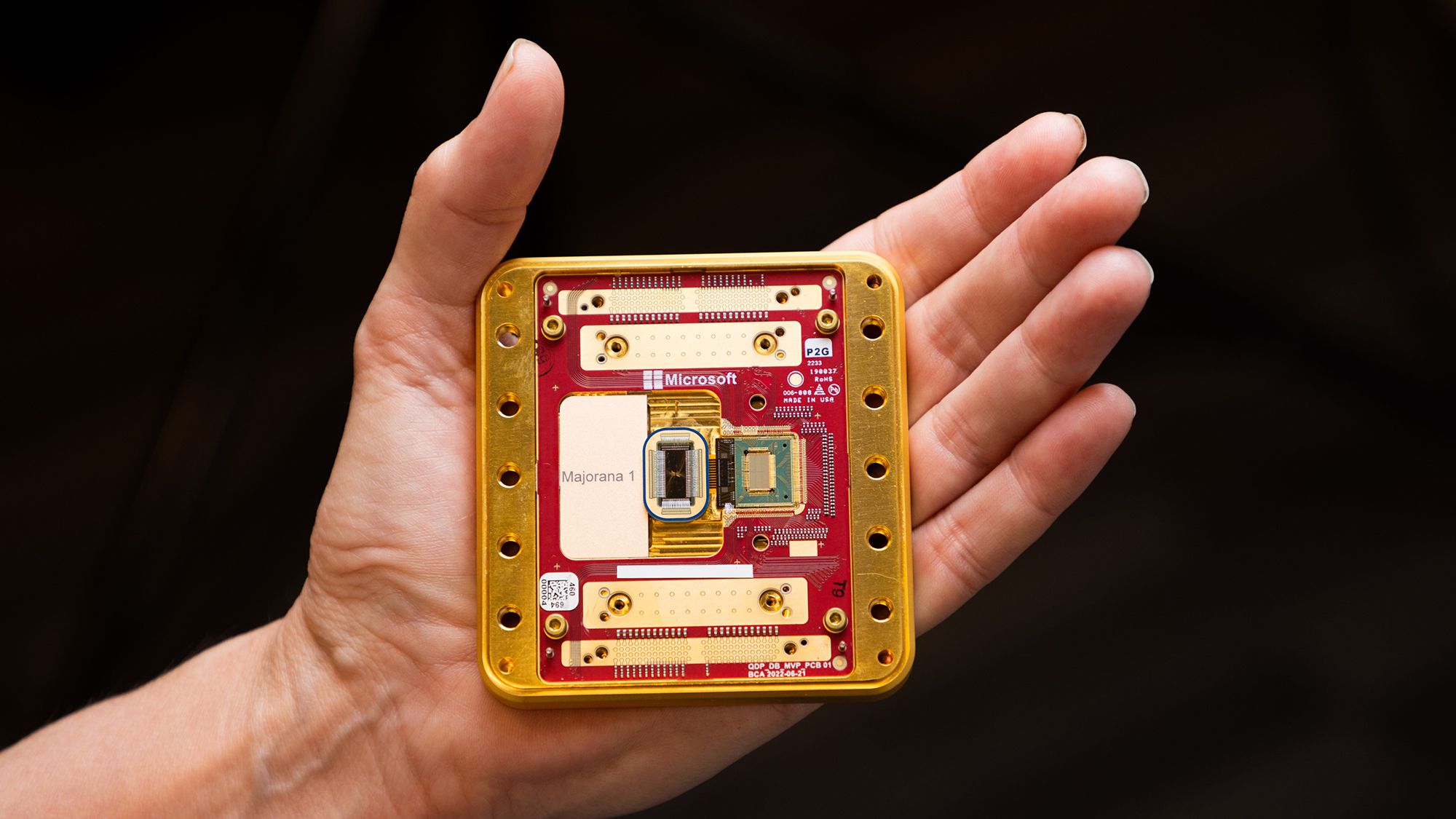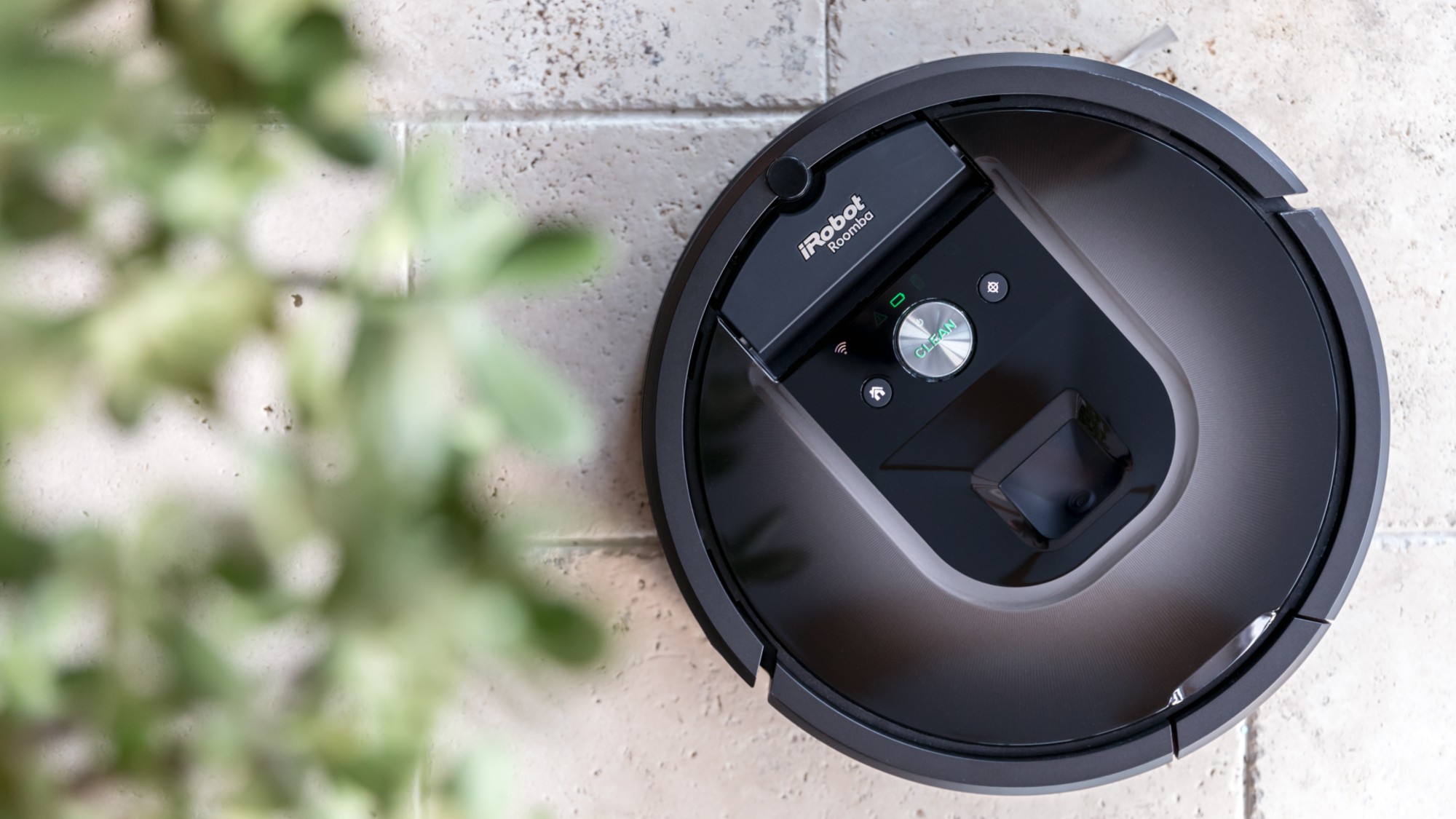Microsoft unveils quantum computing breakthrough
Researchers say this advance could lead to faster and more powerful computers


A free daily email with the biggest news stories of the day – and the best features from TheWeek.com
You are now subscribed
Your newsletter sign-up was successful
What happened
Microsoft said Wednesday it has developed a computer chip based on a new "topological" state of matter — not solid, liquid or gas — that it expects will underpin exponentially faster and more powerful quantum computers "within years, not decades." The company said its custom-built topological superconductor — topoconductor — can "observe and control Majorana particles" to produce topological quantum bits, or qubits, the building blocks of quantum computing.
Who said what
Microsoft said it created eight topological qubits and placed them on its new Majorana 1 processor, but there was a "clear path" to fitting each chip with a million qubits, the requisite "threshold for quantum computers to deliver transformative, real-world solutions" like self-healing building materials and breaking down microplastics. "All the world's current computers operating together can't do what a one-million-qubit quantum computer will be able to do," the company said.
Scientists have "chased the dream of a quantum computer — a machine that could exploit the strange and exceedingly powerful behavior of subatomic particles or very cold objects — since the 1980s," The New York Times said. Microsoft's quantum technology could "leapfrog" rival methods being developed at Google, which two months ago "unveiled an experimental quantum computer that needed just five minutes to complete a calculation that most supercomputers could not finish in 10 septillion years — longer than the age of the known universe."
The Week
Escape your echo chamber. Get the facts behind the news, plus analysis from multiple perspectives.

Sign up for The Week's Free Newsletters
From our morning news briefing to a weekly Good News Newsletter, get the best of The Week delivered directly to your inbox.
From our morning news briefing to a weekly Good News Newsletter, get the best of The Week delivered directly to your inbox.
What next?
Quantum computing is "still in its nascent stages," The Wall Street Journal said, but the race is on and "industry experts suggest the first commercially viable quantum computers could begin to appear in the next half decade or so."
A free daily email with the biggest news stories of the day – and the best features from TheWeek.com
Rafi Schwartz has worked as a politics writer at The Week since 2022, where he covers elections, Congress and the White House. He was previously a contributing writer with Mic focusing largely on politics, a senior writer with Splinter News, a staff writer for Fusion's news lab, and the managing editor of Heeb Magazine, a Jewish life and culture publication. Rafi's work has appeared in Rolling Stone, GOOD and The Forward, among others.
-
 Switzerland could vote to cap its population
Switzerland could vote to cap its populationUnder the Radar Swiss People’s Party proposes referendum on radical anti-immigration measure to limit residents to 10 million
-
 Political cartoons for February 15
Political cartoons for February 15Cartoons Sunday's political cartoons include political ventriloquism, Europe in the middle, and more
-
 The broken water companies failing England and Wales
The broken water companies failing England and WalesExplainer With rising bills, deteriorating river health and a lack of investment, regulators face an uphill battle to stabilise the industry
-
 Can Europe regain its digital sovereignty?
Can Europe regain its digital sovereignty?Today’s Big Question EU is trying to reduce reliance on US Big Tech and cloud computing in face of hostile Donald Trump, but lack of comparable alternatives remains a worry
-
 Claude Code: Anthropic’s wildly popular AI coding app
Claude Code: Anthropic’s wildly popular AI coding appThe Explainer Engineers and noncoders alike are helping the app go viral
-
 TikTok finalizes deal creating US version
TikTok finalizes deal creating US versionSpeed Read The deal comes after tense back-and-forth negotiations
-
 Why 2025 was a pivotal year for AI
Why 2025 was a pivotal year for AITalking Point The ‘hype’ and ‘hopes’ around artificial intelligence are ‘like nothing the world has seen before’
-
 Data centers could soon be orbiting in space
Data centers could soon be orbiting in spaceUnder the radar The AI revolution is going cosmic
-
 What is Roomba’s legacy after iRobot bankruptcy?
What is Roomba’s legacy after iRobot bankruptcy?In the Spotlight Tariffs and cheaper rivals have displaced the innovative robot company
-
 AI griefbots create a computerized afterlife
AI griefbots create a computerized afterlifeUnder the Radar Some say the machines help people mourn; others are skeptical
-
 The robot revolution
The robot revolutionFeature Advances in tech and AI are producing android machine workers. What will that mean for humans?
